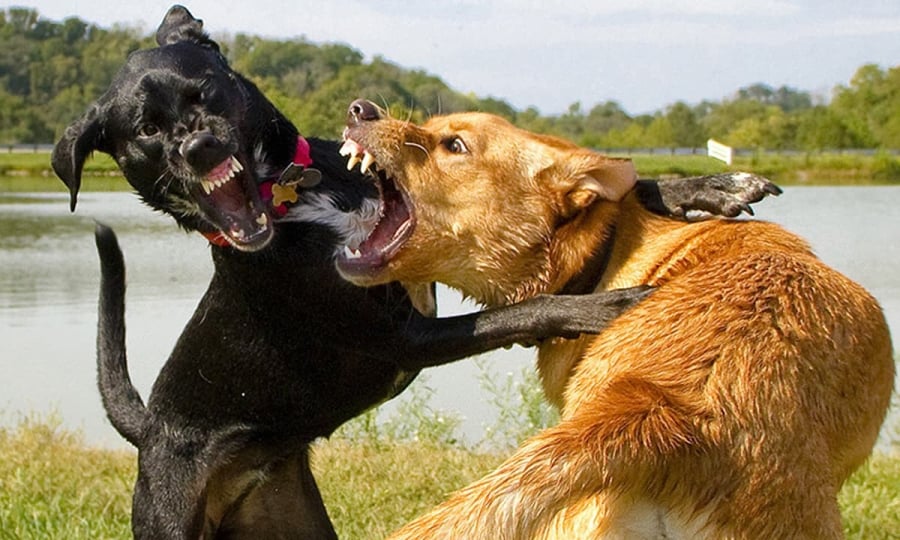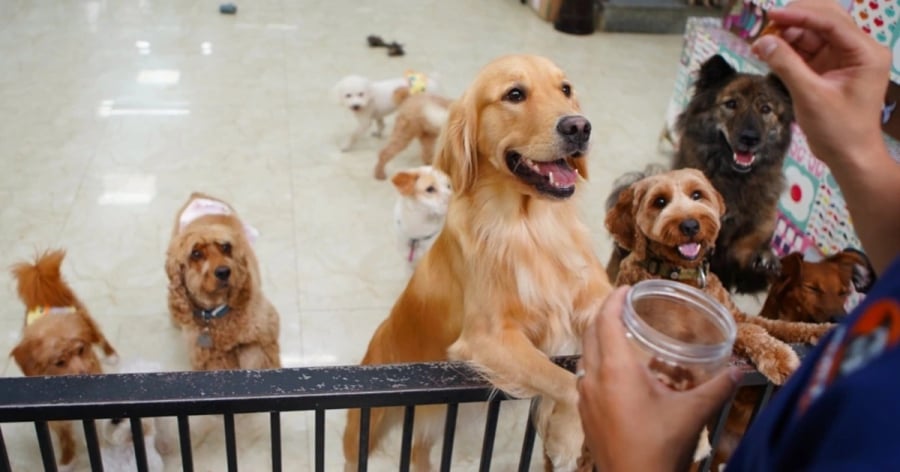Superstitions About Keeping Multiple Dogs in the House
In traditional Vietnamese culture, keeping multiple dogs under one roof has long been considered a bad omen, with various reasons cited for this belief. One of the primary explanations revolves around the potential for chaos and noise that a large number of dogs can bring into a household, disrupting the harmony and peace of the family.

In the past, large families with many mouths to feed already faced challenges. Adding multiple dogs to care for made it even more difficult to ensure sufficient food and a comfortable life, leading to the belief that keeping multiple dogs should be avoided.
Today, with improved living standards and less worry about basic needs, the number of dogs one keeps may seem less significant.
Dogs, with biological similarities to humans, are believed to have an impact on the surrounding environment and, from a Feng Shui perspective, can influence the family’s fortune.
Additionally, according to folk beliefs, having multiple dogs can lead to competition and conflicts between the animals, potentially resulting in unwanted accidents and harm to the owner and family.
Scientific Explanation for Superstitions About Keeping 3 or 2 Dogs
While there are various beliefs and customs surrounding the taboo of keeping multiple dogs, there is no scientific basis to support these claims. Animal experts assert that having multiple dogs does not influence a family’s luck, be it good or bad.
Instead, the presence of numerous dogs can give rise to environmental, health, and safety concerns for both humans and other animals. Thus, the superstition against keeping multiple dogs may be more practically explained by these real-world considerations than by folk beliefs.
Is It Lucky to Be Gifted a Dog?
It is commonly believed that receiving a dog as a gift can bring misfortune. However, folk wisdom suggests that if the gifted dog has a unique color compared to the other dogs in the household, it can actually attract good luck and fortune.
Nevertheless, there is no scientific evidence to support the idea that a gifted dog brings bad luck or fortune. In reality, adopting a gifted dog can bring joy and happiness to a family, as long as the recipients take on the responsibility of properly caring for the animal.
Should You Accept a Gifted Dog?
In some cases, gifted dogs may be strays, and taking them in could pose risks to the family, including the potential spread of infectious diseases to other dogs in the household.
Therefore, when accepting a gifted dog, it is crucial to first ensure the dog’s health and vaccination status before introducing it to other pets in the home. If health checks are not feasible, taking the dog to a veterinary hospital for examination and treatment is advisable.
Moreover, according to folk beliefs, the color of a gifted dog can influence the owner’s fate. For instance, a black dog is considered unlucky, while a white dog is seen as a harbinger of good fortune. However, there is no scientific evidence to support the notion that a dog’s color can affect one’s destiny.
In reality, a dog’s color is merely an external factor unrelated to its personality or the owner’s fate. What matters is that owners take responsibility for their pets’ well-being, including proper care, vaccination, and treatment when needed.
Additionally, the decision to keep dogs should be made considering the family’s circumstances and capabilities. If resources are limited, supporting animal protection organizations may be a better alternative to keeping multiple dogs.

You can choose to have one, two, or more dogs based on your personal preference and capacity.
- Maintain a clean living environment, regularly washing food trays and toys to prevent dog poisoning.
- Provide clean water to avoid health issues that may bring bad luck to the family.
- Allow dogs to interact with their surroundings and breathe fresh air.
- Show affection and spend time with your dogs. Neglecting them can cause sadness and impact the home’s energy flow.
- Avoid sharing personal items with dogs, and do not share a bed, as this can help maintain a balanced energy flow in the home.
Note: This information is for reference only and should not be taken as professional advice.
“Don’t Let Opportunities Slip Away: Seizing the Moment for Success”
In the past, despite facing a life of hardship and poverty, our ancestors had a saying about certain foods that, even if they fell right in front of you, you wouldn’t eat. One such example was the phenomenon of “chim sa cá nhảy”, which translates to “falling birds and jumping fish”. This saying refers to a practice where people would not catch birds that flew into their homes or keep fish that jumped onto the shore or into their yards.



































